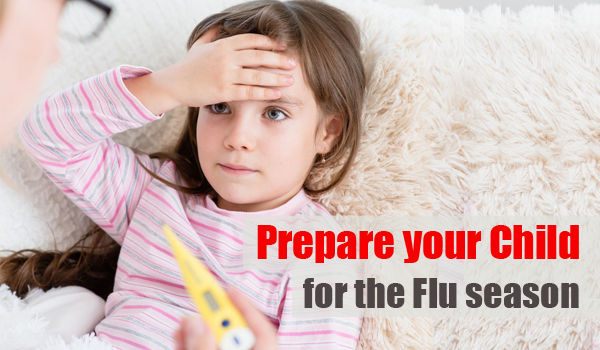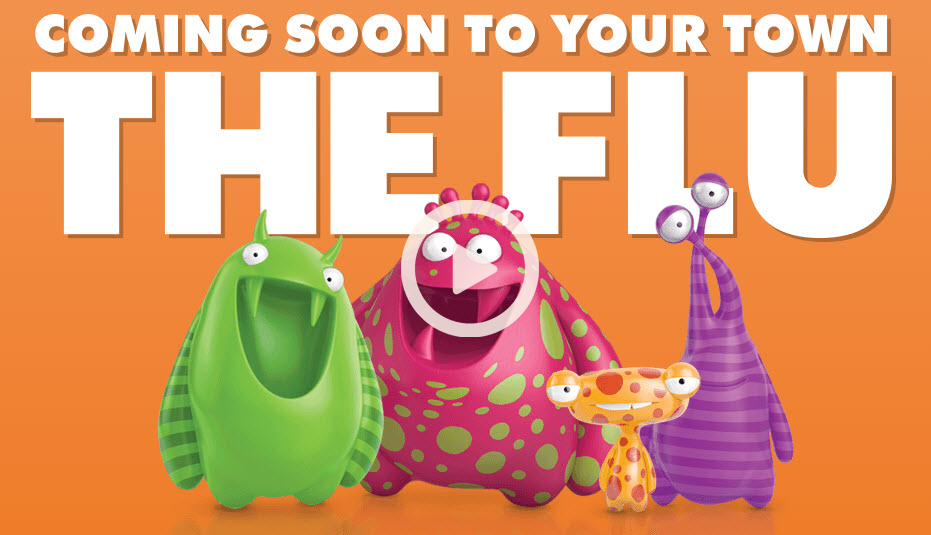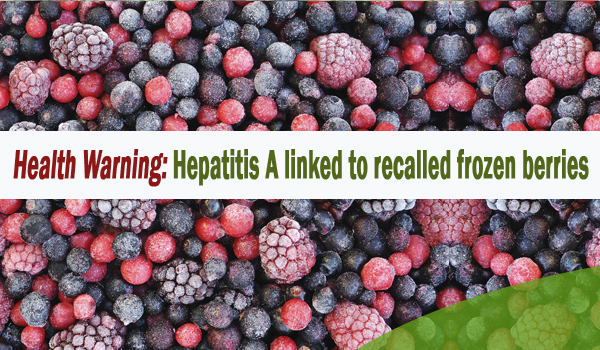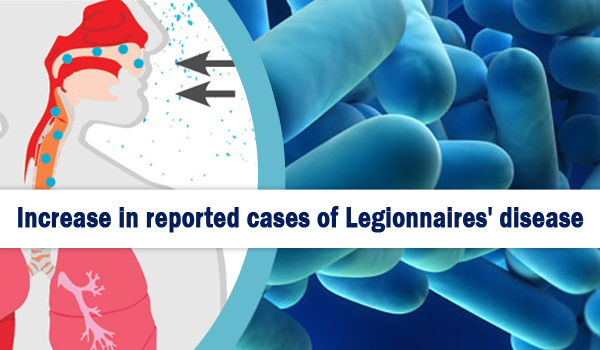Influenza is a serious disease that can lead to hospitalization and sometimes even death. Every flu season is different, and influenza infection can affect people differently, but millions of people get the flu every year, hundreds of thousands of people are hospitalized and thousands or tens of thousands of people die from flu-related causes every year. Even healthy people can get very sick from the flu and spread it to others.
The flu is the greatest cause of hospitalisation in children, and causes more severe illnesses or deaths of Australians than all other infectious diseases combined. In most years, minor or major epidemics of type A or type B influenza occur, usually during the winter months in temperate regions.
Last year, Victoria experienced one of the state’s worst ever flu seasons, and children weren’t immune. In total, there were more than 3,941 reports of children hit by the flu – compared with 871 the year prior.
An annual seasonal flu vaccine is the best way to reduce your risk of getting sick with seasonal flu and spreading it to others. When more people get vaccinated against the flu, less flu can spread through that community.
Influenza is dangerous for children
The clinical features of influenza in infants and children are similar to those in adults. However, temperatures may be higher in children (and may result in febrile convulsions in this susceptible age group), and otitis media and gastrointestinal manifestations are more prominent.5 Infection in young infants may be associated with more non-specific symptoms
Influenza (“the flu”) is more dangerous than the common cold for children. Each year, millions of children get sick with seasonal influenza; thousands of children are hospitalized and some children die from flu.
- Children commonly need medical care because of influenza, especially before they turn 5 years old.
- Children younger than 5 years and especially those younger than 2 years are at high risk of serious influenza complications.
- Children of any age with chronic health problems like asthma, diabetes and disorders of the brain or nervous system also are at high risk of serious flu complications.
How do flu vaccines work?
Flu vaccines cause antibodies to develop in the body about two weeks after vaccination. These antibodies provide protection against infection with the viruses that are in the vaccine.
The seasonal flu vaccine protects against the influenza viruses that research indicates will be most common during the upcoming season. Traditional flu vaccines (called “trivalent” vaccines) are made to protect against three flu viruses; an influenza A (H1N1) virus, an influenza A (H3N2) virus, and an influenza B virus. There are also flu vaccines made to protect against four flu viruses (called “quadrivalent” vaccines). These vaccines protect against the same viruses as the trivalent vaccine and an additional B virus.
The ability of flu vaccine to protect a person depends on various factors, including the age and health status of the person being vaccinated, and also the similarity or “match” between the viruses used to make the vaccine and those circulating in the community. If the viruses in the vaccine and the influenza viruses circulating in the community are closely matched, vaccine effectiveness is higher. If they are not closely matched, vaccine effectiveness can be reduced. However, it’s important to remember that even when the viruses are not closely matched, the vaccine can still protect many people and prevent flu-related complications. Such protection is possible because antibodies made in response to the vaccine can provide some protection (called cross-protection) against different but related influenza viruses.
The single best way to protect your children from the flu is to get them vaccinated each year.
The seasonal flu vaccine protects against the influenza viruses that research indicates will be most common during the upcoming season. Traditional flu vaccines (called “trivalent” vaccines) are made to protect against three flu viruses; an influenza A (H1N1) virus, an influenza A (H3N2) virus, and an influenza B virus. In addition, there are flu vaccines made to protect against four flu viruses (called “quadrivalent” vaccines). These vaccines protect against the same three viruses as the trivalent vaccine and an additional B virus.
Vaccine Side Effects (What to Expect)
Can the flu vaccine give my child the flu?
No, a flu vaccine cannot cause flu illness. Flu vaccines that are administered with a needle are currently made in two ways: the vaccine is made either with a) flu vaccine viruses that have been ‘inactivated’ and are therefore not infectious, or b) with no flu vaccine viruses at all (which is the case for recombinant influenza vaccine). The nasal spray flu vaccine does contain live viruses. However, the viruses are attenuated (weakened), and therefore cannot cause flu illness. The weakened viruses are cold-adapted, which means they are designed to only cause infection at the cooler temperatures found within the nose. The viruses cannot infect the lungs or other areas where warmer temperatures exist.
While a flu vaccine cannot give you flu illness, there are different side effects that may be associated with getting a flu shot or a nasal spray flu vaccine. These side effects are mild and short-lasting, especially when compared to symptoms of bad case of flu.
The flu shot: The viruses in the flu shot are killed (inactivated), so you cannot get the flu from a flu shot. Some minor side effects that may occur are:
- Soreness, redness, or swelling where the shot was given
- Fever (low grade)
- Aches
The nasal spray: The viruses in the nasal spray vaccine are weakened and do not cause severe symptoms often associated with influenza illness. In children, side effects from the nasal spray may include:
- Runny nose
- Wheezing
- Headache
- Vomiting
- Muscle aches
- Fever
In adults, side effects from the nasal spray vaccine may include:
- Runny nose
- Headache
- Sore throat
- Cough
If these problems occur, they begin soon after vaccination and are mild and short-lived. Almost all people who receive influenza vaccine have no serious problems from it. However, on rare occasions, flu vaccination can cause serious problems, such as severe allergic reactions.
https://www.premier.vic.gov.au/free-flu-vaccinations-to-protect-victorian-kids/








